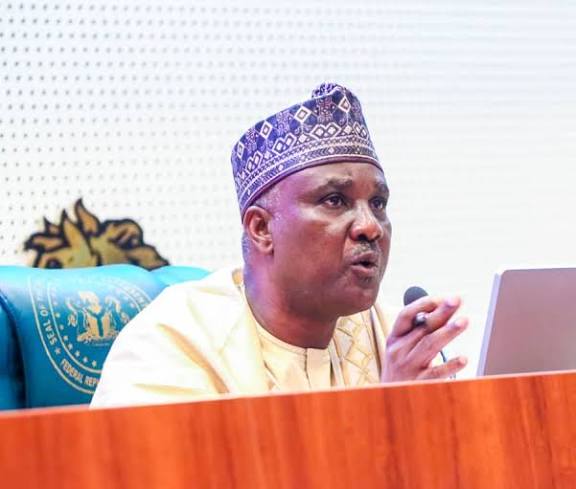
Garba Mohammed
The Speaker of the House of Representatives, Abbas Tajudeen, has clarified that the National Assembly is not opposed to President Bola Tinubu’s borrowing policy, emphasizing that lawmakers view borrowing as a legitimate tool for funding infrastructure and promoting sustainable economic growth.
Speaking on Monday at the 8th Annual African Network of Parliamentary Budget Offices Conference in Abuja, organized in partnership with the National Assembly Budget and Research Office, the Speaker addressed concerns arising from media reports suggesting that the legislature was uncomfortable with the government’s debt strategy. These concerns followed discussions at the 11th Annual Conference of the West Africa Association of Public Accounts Committees, where Nigeria’s debt-to-GDP ratio of 52 per cent—above the statutory 40 per cent threshold—was highlighted.
Tajudeen stressed that reports misrepresented the House’s position. “A speech delivered by the House Leader at the West Africa Parliamentary Conference was mischievously reported out of context, creating the wrong impression that the House of Representatives rejects President Tinubu’s borrowing plan. Such an interpretation is inaccurate and misleading,” he said.
He noted that new borrowings would remain within Nigeria’s medium-term debt framework and international best practices, with proceeds directed toward power, transportation, and agriculture, sectors crucial for boosting productivity, expanding revenue, and reducing poverty.
The Speaker also highlighted Africa’s fiscal vulnerabilities, stating that Nigeria loses approximately $18 billion annually to financial crimes, while the continent loses about $587 billion, mainly due to corruption and illicit financial flows. He emphasized that properly harnessed resources could transform education, healthcare, and infrastructure.
In a goodwill message, Prof. Dumisani Jantjies, Chairperson of AN-PBO, commended Nigeria’s recent economic reforms, which delivered a 3.4 per cent growth rate in 2024, the strongest in a decade, while cautioning that inflation and rising poverty remain challenges.
The conference provided a platform for African parliaments to strengthen fiscal oversight and align public resources with the AU’s Agenda 2063 for sustainable development.
